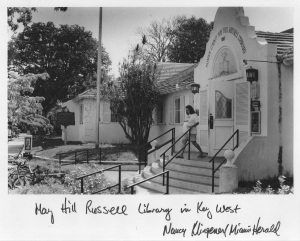[gallery type="slideshow" ids="1576,1575,1574,1573,1571,1572"]
Every year when the shortlists for various literary prizes -- Booker, Pulitzer, National Book Award -- are announced, I think hey wouldn't it be cool to read all the finalists and compare my judgment with the judges? But I never do. This year, however, I had no excuse when the finalists were announced for the Carnegie Medals for Excellence in Fiction and Nonfiction. This is the second year for this prize, given by the American Library Association -- and I would be attending the annual conference in Chicago. I bought tickets to the ceremony and started reading -- there were only six books total, three fiction and three nonfiction.
Neither of my top choices -- The Round House by Louise Erdrich and The Mansion of Happiness by Jill Lepore (with a serious caveat I'll get to below) -- were the ones chosen by the judges. The winners were Canada by Richard Ford and Short Nights of the Shadow Catcher by Timothy Egan. All six were excellent reads; I highly recommend them and I'm glad I did this. I'll probably do it again next year. And then maybe take on another project: reading the winners of the various big contests and comparing them to each other.
A couple things I learned along the way:
* I've been neglecting my literary fiction -- for the last couple years I've been on an extended genre jag. Which is cool ... but means I'm missing out on some great books. It was good to have a reason to read some of the best current fiction. Canada was probably my least favorite of the three but it was an absorbing, if grim, read. It did feature a few fantastic lines like this one about spending the day at the movies in Mississippi:
"We'd emerge at four out of the cool, back into the hot, salty, breathless Gulf Coast afternoon, sun-blind and queasy and speechless from wasting the day with nothing to show for it."
And that is EXACTLY what it's like after you go to the early show at the Regal.
* After reading This is How You Lose Her, I didn't at all buy the argument that it was misogynistic or otherwise hostile towards women -- if anything, Junot Diaz goes out of his way to show what an idiot Yunior is for repeatedly screwing up relationships with smart, cool women. Hence, the title.
* I liked Spillover and I feel kind of guilty for it not being my favorite in the nonfiction category -- in fact, it was probably my least favorite of the three -- but I'd just like to take the opportunity here to say that David Quammen is an amazing science writer for nonscientists and if you haven't read The Song of the Dodo, his masterpiece about island biogeography, go do it RIGHT NOW. It's one of the books I'd grab if my house were on fire. Seriously.
* There wasn't a theme at all to the choices, but the fiction titles were all coming of age stories, which is interesting since Erdrich and Ford are in the double digits, bookwise. And even more interesting, all three were celebrations of geekdom -- Canada's young hero is seriously into beekeeping, Yunior is a comics geek and Joe and his buddies in The Round House are obsessed with Star Trek: The Next Generation. I liked that about all of them.
* The Mansion of Happiness was the easiest going down of the nonfiction titles and I was glad to see it here since it didn't seem to make a lot of other year's best lists, and I admire and respect Jill Lepore as one of those top-notch academics who writes for humans (she's a Harvard professor AND a New Yorker staff writer). But the book felt more like a compilation of great New Yorker pieces than a cohesive book. I'd already read most of them in the magazine and I still enjoyed reading them again -- it was full of fun facts about board games and attitudes toward breast-feeding (like the book called Spiritual Milk for Boston Babes, Drawn out of the Breasts of Both Testaments, published in 1646), the history of library children's rooms and the publication of Stuart Little, sex education and eugenics (including the fact that the guy behind the Ladies' Home Journal column "Can This Marriage Be Saved" was a hardcore eugenicist. Lovely).
* This little project helped clarify for me the role of ebooks and ereaders in my life. Obviously they're great for immediate gratification and convenience and I have no intention of giving them up. But I think I'll try to limit my use of them on my genre reading, which is really focused on plot and character, and not for nonfiction and literary fiction, where I need to focused in a different way. I bought Short Nights of the Shadow Catcher as an ebook shortly after it came out -- but when it came to reading it, I had a difficult time. Which also could have been due to other events in my life at the time. I didn't finish it before the awards ceremony, which made me feel bad -- I was so close to actually meeting my deadline. But I bought a couple print copies at ALA -- they were reduced price! And we didn't have it in the library collection! -- and found my reading was much easier when I switched formats. This is not a judgment on the quality or value of different types of books -- just an observation of my own reading experience. And means, as I had suspected and hoped, that there will be a continuing role for print for many of us even as ereaders and ebooks find their place in what one marketing dude at ALA called "the reading ecosystem."



